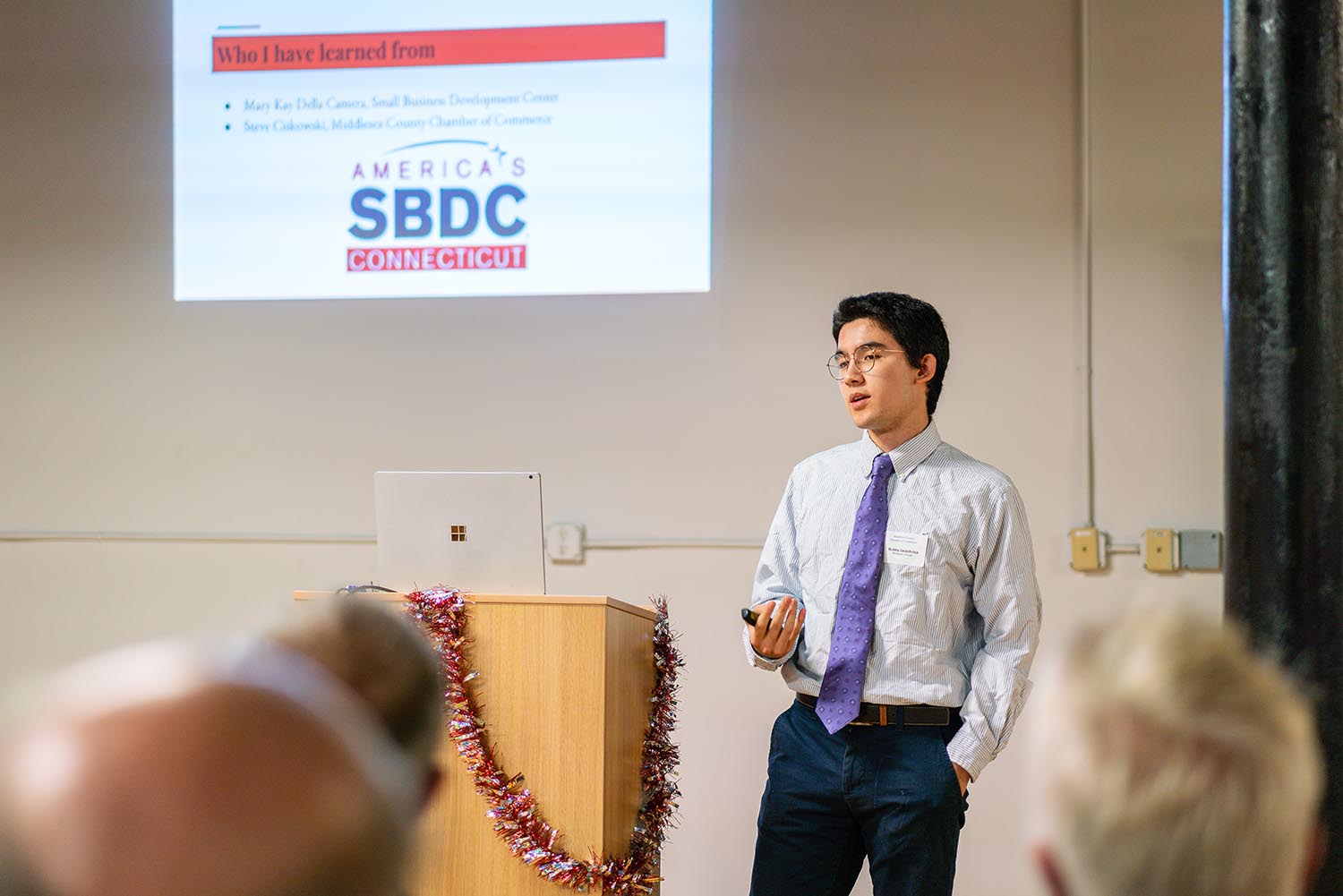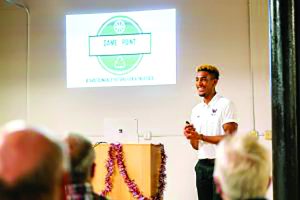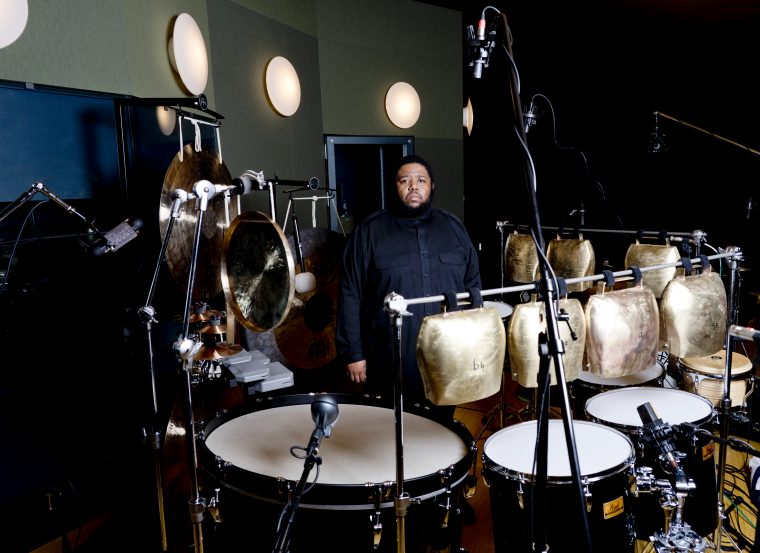StARTup Incubator: Students Learn to Launch Original Business Ideas through CSPL 239

Middletown may not have an aquarium, but it does have a “Shark Tank” of sorts. In a similar spirit to the eponymous hit ABC television series directed by Ken Fuchs ’83, P’17 that pairs entrepreneurs and investors, last December 11 Wesleyan students took turns pitching their business ideas to classmates and members of the Middletown Chamber of Commerce as part of a class called CSPL 239, Startup Incubator: The Art and Science of Launching Your Idea.
The course was initially developed in 2018 by Makaela Kingsley ’98, MALS ’05, director of the Patricelli Center for Social Entrepreneurship, in collaboration with reSET, the Hartford-based social enterprise trust, with support from CTNext and the Newman’s Own Foundation. The course was taught this year by Visiting Assistant Professor of Environmental Studies Rosemary Ostfeld ’10, MA ’12. The evening presentations were hosted by CollisionCT and the Middletown Entrepreneurs Workspace Plus (MEWS+).
As part of their formal presentations, students detailed the need for their proposed startup, their mission, target market, competition, and success indicators. They also talked about why they personally cared about the problem they sought to solve. While the judges didn’t arrive with millions of venture capital dollars at the ready as on television, they were armed with “coins”—plastic disks that represented different amounts of funding—used to vote on the student ventures most deserving of funding, be they a business, nonprofit, or community-based program.

Kingsley notes that the iteration she developed was not the first startup incubator class at Wesleyan. From 2014 to 2016, student-taught offerings were led by Alex Cantrell ’14, Katya Sapozhnina ’16, Thatcher Eills ’17, Christine Clarke ’18, and Irvine Peck’s-Agaya ’18. In all cases, the courses had a decidedly Wesleyan flair, attracting students interested in social good, not just profits.
“Wesleyan students are impact-oriented,” Kingsley says. “They contribute to making the world a better place, but they come at it from an entrepreneurial perspective.”
While some students will use the course to develop products or services, Kingsley said she thinks of it as “next-gen project-based learning,” in which students get hands-on experience translating theory to practice, taking ideas, making them real, and—in some cases—using them to create social or environmental impact.
She says that the emphasis is on developing problem-solving mindsets, creative competence and confidence, and comfort with ambiguity. “Those are skills that our students are going to use over and over again all their lives,” Kingsley says.
“Launching a startup is different from taking a test or writing a paper and getting a grade,” explains Ostfeld, entrepreneur-in-residence at the Patricelli Center during the spring semester, who launched her own startup called Healthy PlanEat. “A business can grow in different ways, and that uncertainty can be challenging for students. Sometimes a concept might not work out, but it opens up a new opportunity. It’s a very different skillset from what they’ve learned in more structured academic environments.”
Ostfeld noted the importance of several mentorship days and outside speakers throughout the semester, allowing students to engage experts in their field and gain practical insights into their work through community involvement.
“You can’t design a business in a vacuum,” Ostfeld says. “You need partners. You need to talk to people, test your ideas, and get involved with the community.”
To learn more about the Fall 2019 student startup ideas, see “StARTup Shark Tank: Students Pitch Next-Gen Socially Conscious Ventures.”

